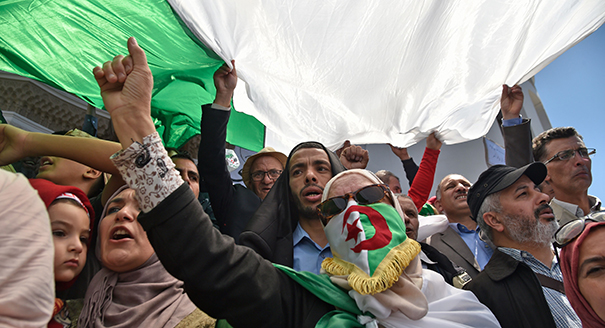Amel Belaid is an oil and gas consultant and founder of APOTHEOX Business Services. She is also the vice president of the Cercle d’Action et de Réflexion autour de l’Entreprise (CARE) think tank in Algeria. She was recently in Beirut, where Diwan interviewed her to get her views on the current situation in Algeria, in particular the economic challenges that the country faces at a time of ongoing protests against the political system and economic conditions.
commentary
Why Money Talks
Amel Belaid discusses the role that economic conditions have played in the Algerian protests.
by Ghida Tayara
Published on May 27, 2019
More work from Diwan



- commentarySyria’s Misunderstood Minority Question
In an interview, Peter Harling discusses the fate of religious communities in the Syrian transformation.


 collectionArab Spring 2.0
collectionArab Spring 2.0Countries in the Middle East and North Africa have been witnessing a resurgence of the uprisings that had swept the region in 2010 and 2011. Many experts described what was called the Arab Spring as a failure, with countries descending into conflict or reverting back to autocratic tendencies, while populations abandoned protest squares. Yet with the unwillingness of Arab governments to tackle the many sources of dissatisfaction at home, citizens have returned to the streets to demand good governance and economic opportunities in twelve of the 22 Arab countries. Carnegie scholars in Beirut and throughout the region offer their analyses of this new wave of protests, explaining its causes, characteristics, and consequences for the politics, economies, and security of the countries involved, and for the broader region in general.
- commentaryArms and the State
In an interview, Marwan Muasher discusses why Arab governments should have a monopoly over weapons.
- commentaryWashington’s Reckless Abandonment
Recent history illustrates why Lebanese officials are so wary of the United States.



